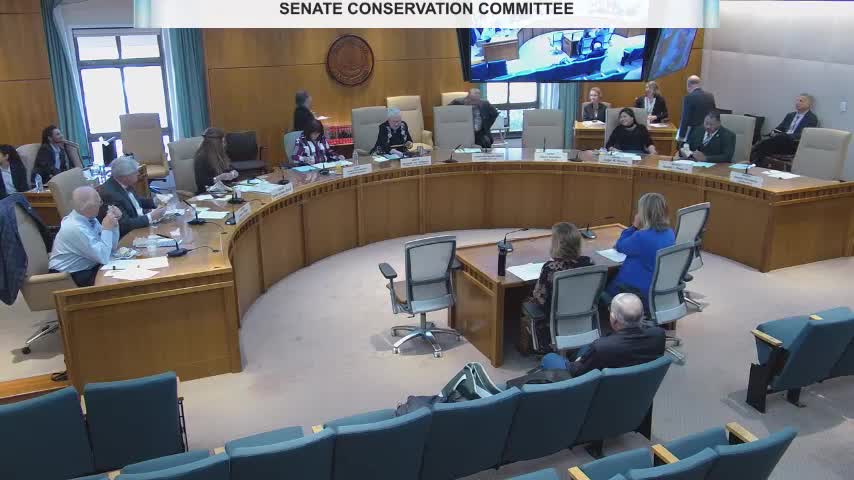Committee hears House Bill 431 to allow appointments to watershed boards where elected boards lack quorum
Get AI-powered insights, summaries, and transcripts
Subscribe
Summary
Lawmakers heard House Bill 431, which would let soil and water conservation district supervisors appoint directors to watershed district boards when landowner-based elections cannot produce a functioning quorum. Supporters said the change fixes problems created by recent local election law changes and longstanding boundary mismatches.
Representative Armstrong appeared before the Senate committee to present House Bill 431, a proposal to permit appointment of watershed district board members by soil and water conservation district supervisors when elected landowner-based boards cannot attain a quorum.
The measure, Armstrong said, responds to rural areas where watershed boards "are having difficulty making quorums and getting important watershed decision decisions made with projects ... with short timelines." Debbie Hughes, executive director of the New Mexico Association of Water Conservation Districts, told the committee the change is needed because recent changes to local election law have left some watershed districts without enough landowners eligible to serve. "This is a very small easy bill, but it is important to to voters in the state because, what's happened with the new local election law ... we don't have enough landowners with some of the watersheds to even make up a board," Hughes said.
Supporters from conservation organizations told the committee that allowing appointments will restore decision-making capacity without changing most boards' composition. Jim Berlier, a registered lobbyist with the New Mexico Association of Soil and Water Conservation Districts, said, "we support this. It just gonna make it a lot easier for those boards to function." Eddie V. Hill, a registered lobbyist for the New Mexico Association of Conservation Districts, urged support as well.
Jillian Joyce, speaking for herself during public comment, said she believed the bill "will allow these boards to be more accountable, more functionable, and more workable, within their communities and allow for better oversight for Marshall and Water Conservation Districts and lead to better results in the long term."
Committee members asked how appointments would interact with existing boundaries and terminology. Senator Ezell sought clarification on language that would allow watershed boards to be "governed by [a] board of directors appointed by the Board of Supervisors for the soil and water conservation district, which the Watershed District located." Armstrong and Hughes explained that state law uses different names—elected soil and water conservation board members are called "supervisors," while watershed boards are "board of directors"—and the bill tries to address situations where watershed district boundaries do not align with conservation district boundaries. Hughes said the bill also contains a provision for "minority jurisdiction" situations: if a watershed district lies within more than one soil and water conservation district, each minority jurisdiction could appoint up to three additional directors so landowners in those districts have representation.
Supporters gave examples of practical problems the bill aims to fix, including watersheds where a single family owns all land within the watershed and therefore no eligible landowners are available to serve on the elected board, and cases where development below dams has increased dam hazard classifications and expanded board responsibilities. Hughes summarized that the change is intended to address what she described as "taxation without representation" in places where property taxpayers live outside watershed boundaries or where election rules prevent them from serving.
The committee gave House Bill 431 a unanimous "do pass" recommendation among members present; the chair announced, "Scott, you have a unanimous do pass." The transcript records several members voting yes and two senators listed as excused. No amendments or conditions were recorded during the hearing.
The bill was presented and heard; the committee forwarded a do-pass recommendation to the next Senate step. The committee adjourned afterward.
